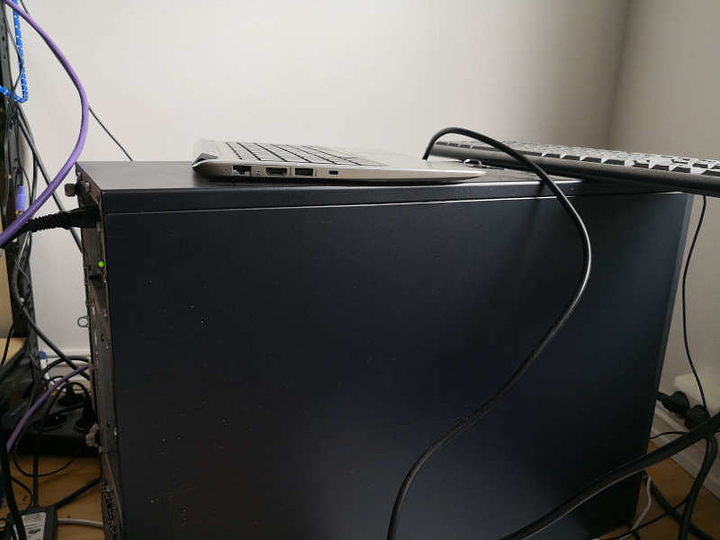This post is about designing and implementing a complete IT logistics environment for personal use. This term may be incorrect/imprecise, so I’ll try to define the concept I have in mind:
(You’ll find definitions at the bottom of this post, in case you can’t mouse-over the abbreviations)
A centralized collection of tools that enables consistent, systematic and version controlled platform-agnostic, on- and off-site access to data and applications with focus on IDE and productivity software, through CMS or RDS web apps or local clients.
*heave* *pant* That was a mouthful…
Sidenote: The CMS software is the core feature of this concept, as it supplies an easy and convenient method of retaining and retrieving all kinds of data. While this could be anything in practice; my main interest lies in information storage, management and correlation. I imagine that being able to save or fetch sources and links on a whim, and to connect them to notes and conclusions through searchable metadata would make documenting online research a dream.
What I’m currently planning on using:
| Function | Tech | Status |
|---|---|---|
| Router/firewall w/ VPN: | PC Engines APU3C4 with IPfire | On hold |
| Server HW: | ML330 G6, or whatever I have at hand until I can liberate the ML330 from its current duty. | Using old, screenless HP specter (laptop) |
| OS: | Debian. I have more experience with Arch Linux, but stability and low maintenance is in this case of prime concern. | Running headless Stretch |
| RDS: | Xpra. NoMachine also has good features, but is not open source. | Testing |
| CMS: | Plone | Testing |
| IDE: | Eclipse Che. Mostly because of its browser-based IDE. | Investigating dependency |
| Backup: | rsync | On hold |
| VCS: | CMFEditions (Plone integrated VCS) | Testing |
To do:
- Decide on VCS and what parts of the system it should cover.
- Examine features of CMFEditions, and compare them to e.g. git.
- Investigate feasibility of connecting Plone and Eclipse Che
and VCS
(Think searchable blame and commit messages with minimal effort, in same interface you keep all your research. May become a dream scenario. Could very well turn into a complete nightmare…) - Evaluate the Eclipse Che dependency: Docker
- Review pros and cons of containerization
- Consider possible utilization outside Eclipse (experiment with Docker+Xpra)
All software should ideally be open source, free and relatively lightweight.
Background
In the more than two decades I have dwelled in front of different computer screens, I’ve never actually had any form of consistent environment for either development, research or leisure. This fits my personality just fine and I have never considered it to be a major issue, as ad-lib solving of most tech-related problems is my forte. I am however currently examining possible changes in my work style, as I want to develop some idea of mine that requires a more stable milieu than I’m capable of maintaining on my own desktop.
Feedback
Unless I see some interest/suggestions in this little project, I’ll just tinker with whatever I deem best for my specific scenario. But I do prefer to solve problems in a not too specific/limited way, so it may be employed in some different situations.
So if you have any questions, constructive suggestions or critiques, please do ask or tell!
Also, if you know of something out there which already has solved this (rather specific) problem, I’d really like to know! 
Abbreviations
CMS = Content Management System
IDE = Integrated Development Environment
RDS = Remote Desktop Software
VCS = Version Control Systems
